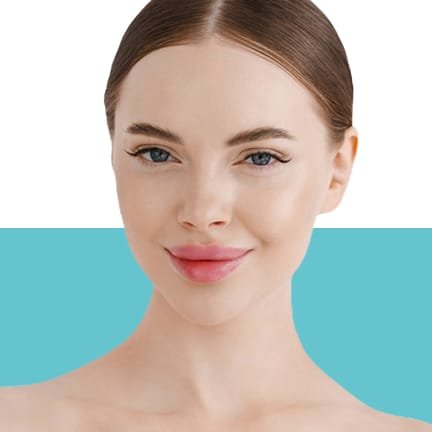

Introduction: Monsoon Skin & Hair Care: Tips & Treatments

Monsoon is a time of relief from the heat, but it also brings its own set of challenges for your skin and hair. Dr. Jalpa, a leading expert in skincare and hair health, often emphasizes how important it is to adjust your routine during the rainy season. The increased humidity during this time can lead to oily skin, clogged pores, and a higher likelihood of fungal infections. For hair, the dampness and frizz can make it difficult to maintain shine and smoothness, while also making it prone to breakage. Dr. Jalpa advises that it’s essential to focus on gentle cleansing, hydration, and protection. Regular exfoliation, light moisturizers, and non-comedogenic products can help keep your skin healthy, while nourishing hair masks and anti-frizz serums can improve hair texture. Here’s a breakdown of what happens to your skin and hair, how to adapt, and the treatments that can help keep them looking their best during the rainy season.
Skin Concerns:
- Increased Humidity: The high moisture levels in the air can lead to oily skin and clogged pores, which might result in acne or breakouts.
- Dullness: The constant rain and cloud cover can deprive your skin of the usual sunlight, leading to a dull, uneven complexion.
- Dehydration: Despite the humidity, the skin can still lose moisture, causing it to look dry and parched, especially after long exposure to rain or cold.
- Fungal Infections: Increased moisture and dampness can create a breeding ground for fungal infections like athlete’s foot, ringworm, or fungal acne.
- Sensitive Skin: Skin may become more sensitive due to the combination of moisture and pollutants, leading to redness, irritation, and inflammation.
Hair Concerns:
- Excess Oil Production: Like skin, the scalp can become oilier due to humidity. This can clog hair follicles, making hair look greasy and weighed down.
- Hair Fall: Excessive sweating, combined with the humidity, can cause scalp irritation, weakening hair roots and leading to increased hair fall.
- Frizz and Damage: The high moisture content can also cause hair to become frizzy, leading to breakage and split ends.
- Fungal Scalp Infections: Damp, warm conditions can promote fungal growth on the scalp, causing dandruff or scalp itching.
Monsoon Skin & Hair Concerns

Lifestyle Changes: Quick 5 Tips

- Keep Your Skin Clean & Dry: After exposure to rain, cleanse your skin thoroughly with a gentle, hydrating cleanser to remove dirt and sweat. Pat skin dry—don’t rub!
- Avoid Over-Washing Your Hair: While you might feel like washing your hair more frequently, over-washing can strip your scalp of its natural oils. Stick to washing hair every 2-3 days.
- Hydrate, Hydrate, Hydrate: Drink plenty of water to combat the humid weather and keep your skin and hair hydrated. This helps flush out toxins and keep moisture levels balanced.
- Use Lightweight Moisturizers: Opt for oil-free or gel-based moisturizers that hydrate without clogging your pores, and switch to lighter hair products like serums or leave-in conditioners that don’t weigh hair down.
- Sun Protection (Even on Cloudy Days): UV rays can still affect your skin even when it’s cloudy. Dr. Jalpa recommends using a broad-spectrum sunscreen daily and wearing a hat or scarf to protect your hair from UV damage.
For Skin:
- Vitamin C: Helps with collagen production, which can improve skin elasticity and reduce wrinkles. You can find it in citrus fruits, berries, and leafy greens.
- Omega-3 Fatty Acids: Helps lock in moisture for skin and reduce inflammation. Found in flaxseeds, walnuts, and fatty fish like salmon.
For Hair:
- Biotin: Promotes healthy hair growth and helps prevent hair thinning. You can get it from eggs, almonds, and sweet potatoes.
- Zinc: A deficiency can lead to hair thinning, so ensure you’re eating pumpkin seeds, lentils, and chickpeas.
Supplements:
- Collagen supplements can help maintain skin elasticity and hydration.
- Multivitamins with B-vitamins (like B7/biotin) and vitamin D can support healthy skin and hair growth.
Nutrition & Supplement Tips

Hormone/Blood Test Check & Deficiencies

Monsoon season can sometimes highlight existing nutritional deficiencies or hormonal imbalances that may affect skin and hair health:
- Iron Deficiency: A lack of iron can cause hair loss and skin pallor. Iron-rich foods or supplements can help.
- Vitamin D Deficiency: Since sunlight exposure decreases during the monsoon, a Vitamin D deficiency may contribute to hair thinning and skin problems like acne.
- Thyroid Imbalance: Hormonal issues, especially an underactive thyroid (hypothyroidism), can result in hair thinning and dry skin. A blood test can check your levels.
Typical Hair and Skin Issues During Monsoon
Skin:
- Acne: Due to increased oil production and clogged pores.
- Skin Sensitivity: Due to weather changes, pollutants, and fungal infections.
- Fungal Infections: Like ringworm, athlete’s foot, or eczema.
Hair:
- Frizzy Hair: Due to increased moisture and humidity.
- Scalp Irritation: Can lead to dandruff or itching.
- Increased Hair Fall: Hormonal changes or fungal infections can cause more hair shedding.
For Skin:
- Chemical Peels: To clear out pores and brighten the complexion.
- Laser Treatments: For skin rejuvenation, reducing pigmentation, and improving texture.
- HydraFacial: A deep cleansing facial that hydrates the skin, removing impurities and excess oil.
For Hair:
- PRP (Platelet-Rich Plasma): A great treatment to stimulate hair growth by using your blood’s growth factors.
- Mesotherapy: Involves injecting vitamins and minerals into the scalp to promote hair regrowth.
- Laser Therapy: Low-level laser therapy (LLLT) can help reduce hair fall and stimulate growth.
- Scalp Treatment: For those dealing with dandruff or scalp irritation, in-clinic options like medicated creams or laser treatments can be effective in restoring scalp health and reducing flakiness.
In-Clinic Treatments for Hair Loss and Skin Issues

Dr. Jalpa’s Perspective:

Dr. Jalpa emphasizes that prevention is key. She recommends adapting your skincare and haircare routines to the season, focusing on hydration, and using the right products to control oil while preventing fungal infections. Balanced nutrition and proper lifestyle habits, such as getting enough sleep, reducing stress, and regular exercise, are essential to support both skin and hair health during this time.
Monsoon brings a refreshing change but also challenges for skin and hair health. By following Dr. Jalpa’s tips for lifestyle changes, maintaining a balanced diet, and staying on top of potential deficiencies, you can minimize the season’s impact. Don’t forget the importance of in-clinic treatments to boost results, especially if you’re dealing with hair loss or skin infections. With the right care, you can thrive through the rainy season with glowing skin and healthy hair! 🌧️💆♀️💇♂️
Conclusion:

Talk to Experts


